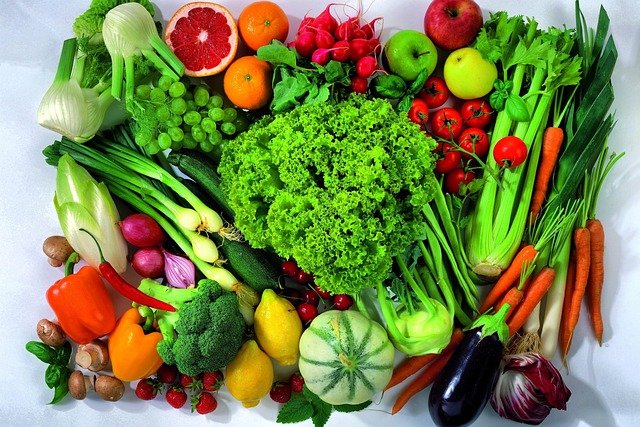Chronic inflammation is associated with most chronic illnesses, including:
- Inflammatory Bowel Diseases
- Cancer
- Alzheimer’s Disease
- Heart Disease
- Obesity
- Metabolic Syndrome
The list goes on and on. The scary thing is that much of this inflammation is silent.
When you have an injury, you will typically feel and see signs of inflammation. These are typically redness, swelling, heat and pain.
However, silent inflammation is low-grade and occurs in your body continually.
How Acute Inflammation Works
Inflammation is actually a mechanism that the body uses to repair itself. So in the case of an acute injury, the blood vessels dilate, which increases blood flow into the injured or affected area.
The blood vessels then become “leaky”, which allows a fluid called “exudate” to leave the blood vessels and go into surrounding tissues.
This fluid includes clotting factors and white blood cells that help to prevent the spread of infection, and help the affected area to heal.
Chronic Inflammation
Chronic inflammation is an ongoing condition that is triggered by factors such as diet, lifestyle, and environmental factors.
As I mentioned earlier, chronic inflammation is closely associated with chronic diseases and autoimmune conditions, and is usually a precursor that can lead to these conditions.
According to the CDC, “6 in 10 adults in the US have a chronic disease, and 4 in 10 adults have 2 or more.” That’s a lot of inflammation!
You Are in Control
Yet, many of these diseases are preventable, manageable, and even sometimes reversible by making dietary and lifestyle changes!
Isn’t that amazing?!
This is where I come in, as a Functional Nutrition Counselor, and help you to make some of these changes that can have a huge impact on symptoms and disease progression.
While there is no magic bullet, I’d say that food and lifestyle change can come pretty darn close!
5 Ways to Stop Chronic Inflammation
#1 Break up with added and artificial sugar!
Sugar is very inflammatory. The average American consumes 17 teaspoons of added sugars per day, over ⅓ cup of added sugar. The American Heart Association says that kids are eating even more sugar every day. So many processed foods and drinks, especially the ones that we give to our kids, are full of added sugar.
If you would like to take a deep dive into this topic, watch my YouTube video on how added sugars affect your health.
If you eat a diet high in processed foods and drinks, then it’s likely that you’re consuming a lot of added sugars.
Remember to take small, sustainable steps, and try natural sweeteners like honey, maple syrup, dates and coconut palm sugar.
#2 Remove Gluten
Ugh. I know. Foods containing gluten are so good! But gluten is also very inflammatory.
In fact, recent research has shown that every time we eat something containing gluten, we are increasing intestinal permeability, or leaky gut, which in turn leads to chronic inflammation.
This is because when we eat gluten, there is an indigestible part called gliadin, which comes into contact with the cells of the epithelial lining of our small intestine.
When this happens, these cells release a protein called zonulin.
Zonulin is important, because it regulates the tight junctions that hold the cells of our epithelial lining together.
The epithelial cells of our small intestine form a barrier that prevents bacteria, fungi, large food molecules, and other foreign substances from getting into the bloodstream.
When zonulin is released, these tight junctions open up and the gluten proteins, as well as any other offenders make their way into your bloodstream, which then initiates an immune response that leads to inflammation.
For more information on this topic, check out my YouTube videos about gluten and why it’s a problem, and what you can eat if you’re avoiding gluten.
#3 Heal Your Gut!
Gut health is vital to overall health and well being.
When I refer to your “gut”, I mean your gastrointestinal tract and primarily your small intestine where you absorb the majority of your nutrients.
The small intestine is lined with a single layer of cells, and this layer is called the epithelium.
Just like I explained with the gluten scenario, the intestinal barrier is bound together by different types of cell junctions, specifically the tight junctions.
Those junctions can break down, allowing these foreign substances into your bloodstream, leading to an immune response and inflammation.
Other than gluten, several factors can lead to intestinal permeability, which is also called “leaky gut.“ Some of these include:
- Nutrition
- Stress
- Chemicals
- Some medications
- Frequent antibiotic use
- Dysbiosis
So it is important to focus on healing your gut, so that you’re not having a chronic immune response.
This is possible to do, and all of the other things that I list here are ways that you can initiate this process. (ie. Remove added and artificial sugars, remove gluten, reduce stress and eat the rainbow)
Also taking a high quality probiotic everyday, as well as consuming fermented, probiotic rich foods will help to ensure that your microbiome is in a healthy place.
# 4 Reduce Stress
We all deal with stress. However, it is learning how to manage that stress which is so important. Trust me. I am still learning this!
Chronic stress actually slows down our digestion, which leads to slower motility (I’m talking about poop!).
Slower motility can lead to constipation, which in turn results in our body reabsorbing a lot of the toxins that it would have expelled through that stool.
Also, chronic stress can weaken our immune system, because it can lead to decreased production of secretory Immunoglobulin-A (sIGA), which is our primary defense that protects us from pathogenic and toxic materials entering our muscosae.
Try incorporating some daily relaxation techniques into your schedule. As with everything, start small and make it sustainable!
Deep breathing, prayer, exercise, time in nature and aromatherapy are all great ways to reduce stress.
#5 Eat the Rainbow!
Vegetables and fruit are full of a compound called polyphenols. It is this compound that causes them to be very anti-inflammatory in nature.
Polyphenols are full of antioxidents, which neutralize the Reactive Oxygen Species (ROS), or free radicals, that contribute to inflammation.
They’re also prebiotic, which means that they feed your beneficial bacteria and help the bacterial composition in your gut, so that the “bad” do not out-compete the “good”.
Dysbiosis, which is when the composition of your gut bacteria is out of balance, can lead to chronic inflammation. So you want to make sure that you are feeding the good bacteria, and again, colorful fruit and vegetables are fantastic for this.
When your microbiome is in balance, the good bacteria works to break down the fiber in the fruit and vegetables.
This produces vitamins and short-chain fatty acids that are nourishing to your gut, and helps the intestinal barrier to function better.
So try to make sure that you are eating a large variety of colorful fruits and vegetables throughout the week.
Don’t be afraid to try new things. If you struggle with GI issues, you may want to try cooking them to help your body with digestion.
Ready to take control of your autoimmune disease and find relief from your symptoms? My signature 6-month program, Autoimmune Harmony will provide you with expert support and guidance, a personalized wellness plan, customized meal collections, and proven strategies, all tailored to meet your specific needs so that you will have the tools and knowledge you need to thrive. By the end of 6 months, we will take your flare-ups from frequent to few and far between, so you can live your life fully.
Don’t let autoimmune disease hold you back any longer – take the first step towards a healthier, happier life with Autoimmune Harmony. Schedule your Autoimmune Insight Session today!









Leave a Reply